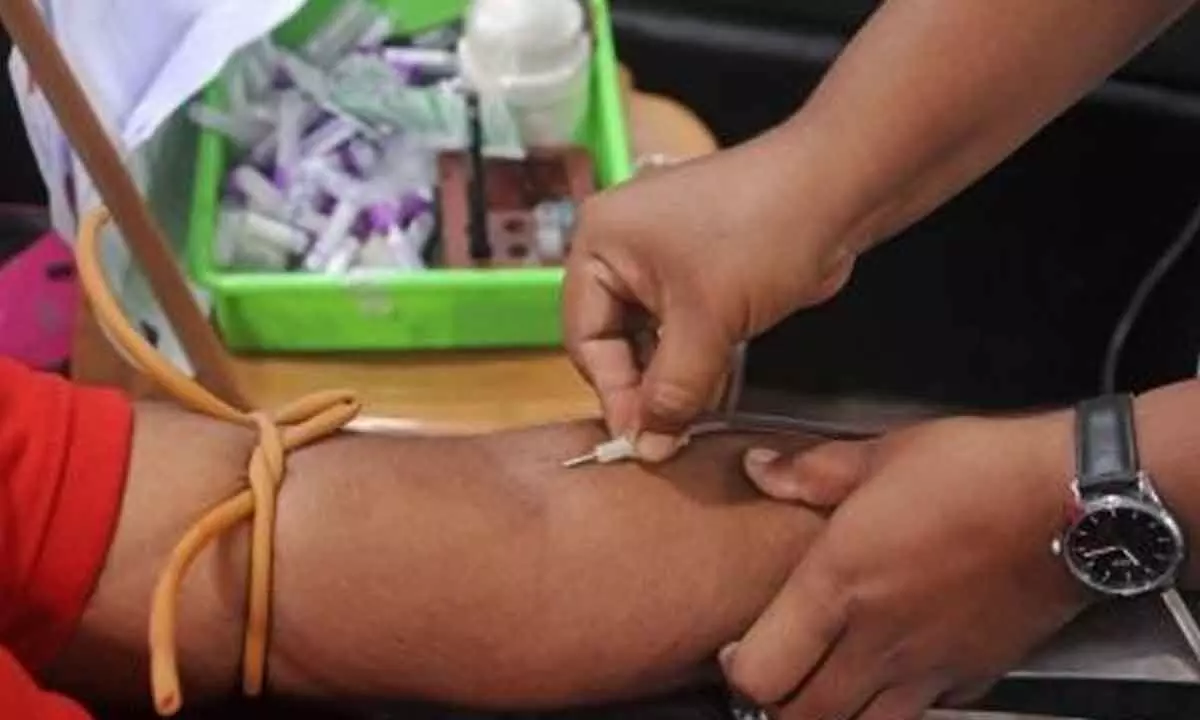National blood policy best way to guarantee safest blood
World Blood Donor Day is observed every year on June 14 to honour and thank those people who donate their blood, voluntarily and unpaid, to give others the gift of life
image for illustrative purpose

According to the World Health Organization (WHO), the national blood system should be governed by national blood policy and legislative framework to promote uniform implementation of standards and consistency in the quality and safety of blood and blood products
New Delhi: A clear national blood policy, with all its stakeholders working together, is the best way to ensure that patients receive the safest possible blood whenever they need it, said experts on World Blood Donor Day on Friday.
World Blood Donor Day is observed every year on June 14 to honour and thank those people who donate their blood, voluntarily and unpaid, to give others the gift of life.
According to Rahul Bhargava, Principal Director & Chief BMT, Fortis Memorial Research Institute, Gurugram, investing in blood bank infrastructure and advanced testing allows us to catch potential issues early on.
"That's why robust government initiatives are crucial. Encouraging voluntary donation and stricter donor screening tests are vital for blood donation and access to safe blood," Bhargava said.
According to the World Health Organization (WHO), the national blood system should be governed by national blood policy and legislative framework to promote uniform implementation of standards and consistency in the quality and safety of blood and blood products.
In 2018, 73 per cent of reporting countries, or 125 out of 171, had a national blood policy. Overall, 66 per cent of reporting countries, or 113 out of 171, have specific legislation covering the safety and quality of blood transfusion, as per WHO data.

